Located on the banks of the Fox River, the Paper Discovery Center is one of the more impressive museums I’ve encountered in my travels. On the surface, it may not sound like a particularly interesting to some, but this little museum covers several important topics relevant to the area. The history of the paper industry is tied to the development of Appleton, Wisconsin and its surrounding communities. In fact, local history and culture, economic development, and even the natural environment all come together in this historic building.
*Disclosure: I was provided an exclusive tour of the museum. As always, opinions are my own.
The Atlas Paper Mill was constructed in 1878 to produce products from the booming logging industry. Situated on the Fox River, the Atlas mill, along with several others, were part of what would become a massive paper and wood products economy in the region. The river was perfect for both shipping materials and also providing belt driven power to the mill. Later, the Vulcan hydroelectric plant was added nearby as a show of early technological innovation in the region. The Kimberly-Clark company donated the old mill to the Paper International Hall of Fame, which in turn reopened it as the Paper Discovery Center in 2005.
The Paper Discovery Center’s mission is stated as, “Motivating Learning, Experiencing Technology, Celebrating Innovators, and Promoting Cultural Heritage.” This is a lofty goal for a smaller museum, but they do a wonderful job of meeting these goals. They are able to do this because of how all these aspects intersect. The main focus is on showing visitors different parts of the local paper industry. The history and people who made it happen, machinery from the process, and products which are made from paper. They do this through several displays, video, and hands-on activities.
The museum occupies both levels of the old Atlas Mill, though all of the displays are currently on the main floor. The basement is currently being used for special activities and storage, however, there are major renovations and expansion plans in the works. The location of the museum is part of the experience. While strolling through the main hall, you look up from the many displays and see the Fox river right outside and it brings home the connections to the area. While I was there, the river was experiencing historic flood levels from heavy rains and late snowfall, which brought the river within inches of the basement. It was quite a sight.
Here’s a fact that may surprise you: one third of their visitors are seniors. I can see why. Many museums make the mistake of centering everything around younger kids. Often times, I’ll find an interesting place to explore, only to discover my 10 year old daughter has already outgrown the target audience. The other downfall of such planning is that the parents of those young children do not feel much connection or take anything away for themselves. The Paper Discovery Center has a different feel. The displays and activities provide a good mix of interest for visitors of all ages. My favorite part of the tour was making my own sheet of paper. At the elementary school level it’s good messy fun, but as an adult you gain an appreciation of the steps involved and can let loose with your creativity.
The Paper Discovery Center also organizes other activities, such as summer science workshops and field trips for kids, and hands on seminars for adults. There is an outdoor area for use in warmer months to get visitors even closer to the river and nature which made the local paper industry possible.
The Paper Discovery Center is open Monday through Saturday most days. Admission is and affordable $7 for adults, and $5 for seniors (62+) and kids (3-18). The museum has an interesting gift shop, including kits for making paper at home, but no food food service or snacks.
Visit the official website for more details on hours and special programs.

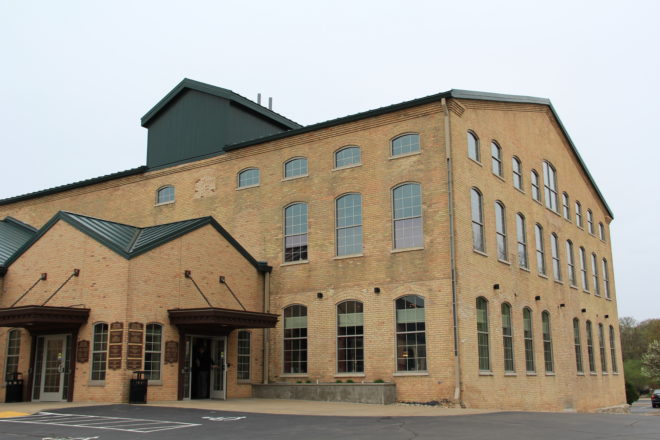
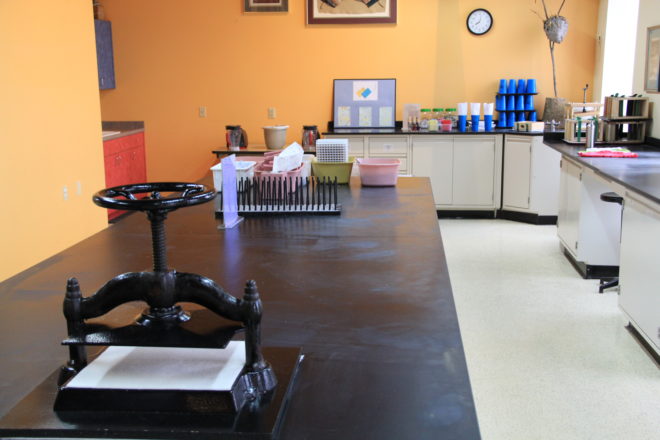
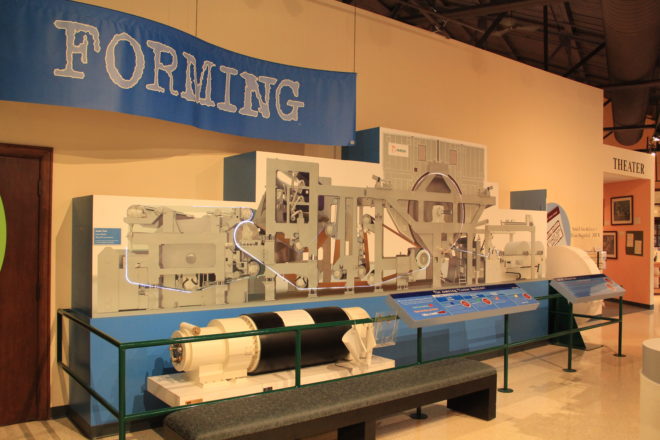
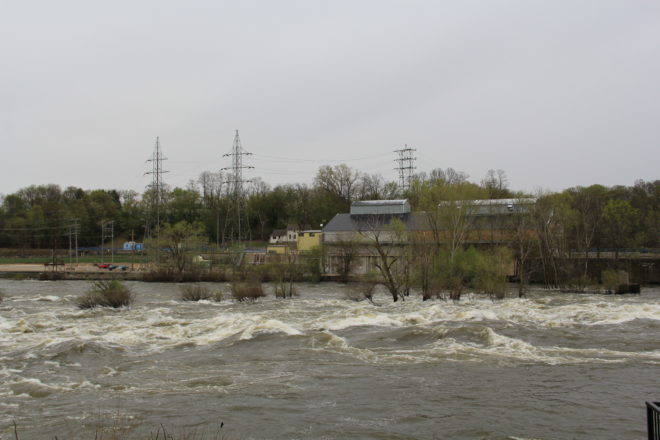



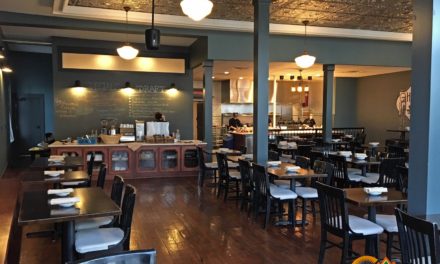
What an interesting history! I would love to walk through sometime – I’ll have to keep it on my list for the next time I’m up in Wisconsin! I’ve always seen paper making kits and ideas but never actually tried it.